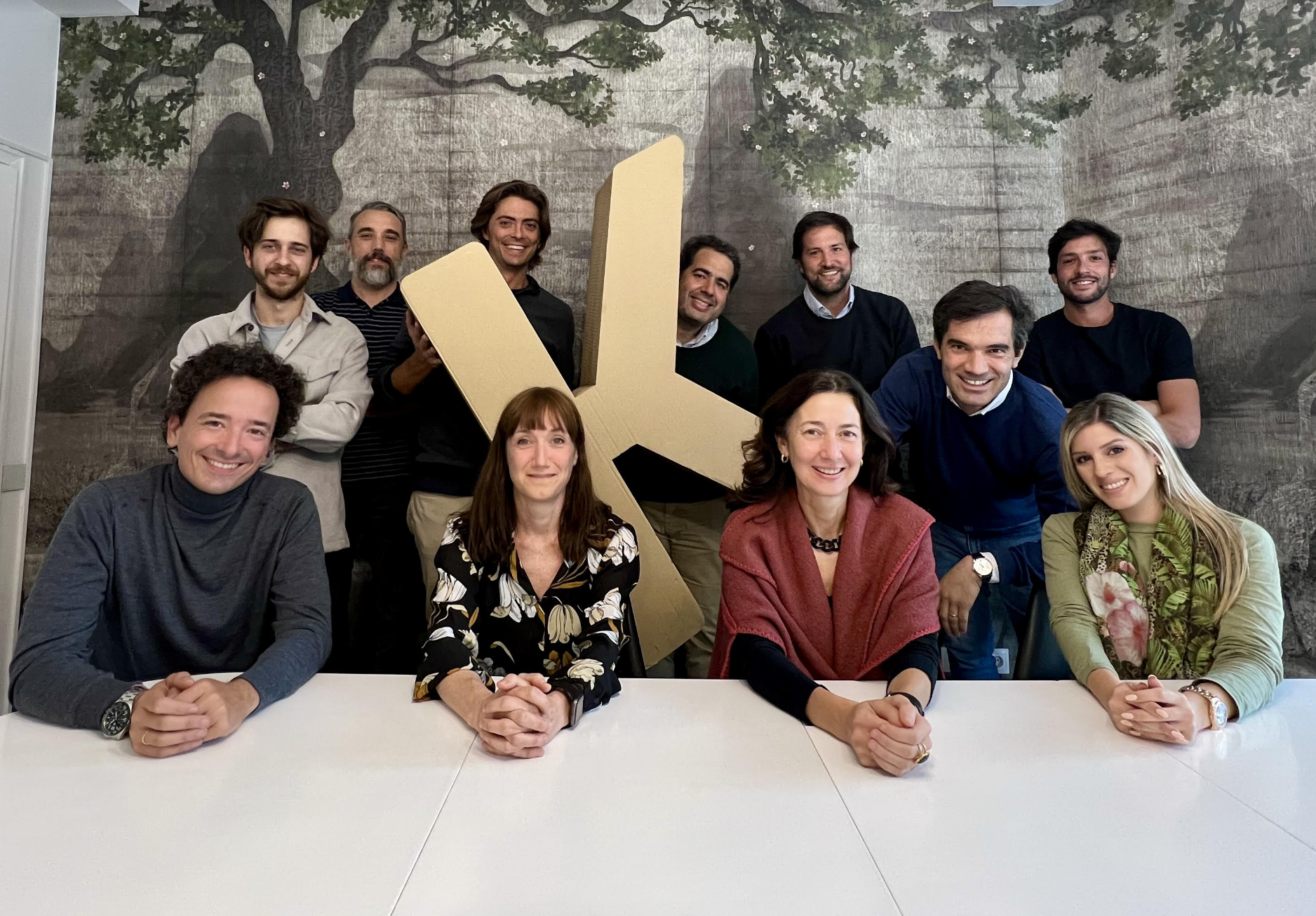Iberia used to have something of a reputation for being a sleepy backwater when it comes to deeptech innovation. Countries like Spain have been criticised for being friendlier markets for copycat ecommerce ideas than truly cutting-edge innovation — but that’s all starting to change.
Spain is now producing world-leading quantum computing startups, while Portugal boasts AI unicorns like Unbabel, as well as rising stars like automated retail startup Sensei.
A recent European Commission plan also outlined a roadmap to create “deeptech valleys” all over the continent, as well as new training programmes to prepare Europe’s next generation of deeptech talent.
In this piece, we asked four top deeptech investors in the region to pick some of the most exciting companies they’re seeing in fields like AI, AR, photonics, cybersecurity and big data. There was just one rule: they could only pick one portfolio company!
Here’s who they chose to spotlight.
Rocío Pillado, partner — Adara Ventures
Adara Ventures was founded in Madrid in 2005 and invests in early-stage B2B companies working in fields including cybersecurity, big data, and digital health. The firm's portfolio companies include cybersecurity provider AlienVault, consumer intelligence AI platform Seedtag and AI optimisation startup Apres.
KIT-AR — Lisbon, Portugal
KIT-AR is an end-to-end solution that uses augmented reality (AR) to improve the performance of manufacturing workers. Paired with an AR headset, the tech gives workers “computer vision” of components, enabling them to implement quality assurance checks with greater reliability and less training.
Spotlab — Madrid, Spain
Microscope analysis remains a highly manual, very challenging and non-standardised skill, done with the naked eye. Spotlab turns any smartphone into a microscope analysis tool, using an AI model to reduce interpretation errors and help professionals make data-driven decisions.
Nearby Computing — Barcelona, Spain
The number of Internet of Things (IoT) devices is increasing exponentially, with 43bn devices expected to be deployed by 2023 (three times the number in 2018). This paradigm shift will require a shift from “cloud computing” to “edge computing” (where data is processed closer to the data source rather than in a central cloud server). Nearby Computing’s product allows clients working with complex networks of devices to build edge computing architecture that is flexible and easily manageable.
One from the portfolio: Iomed — Barcelona, Spain
Up to 80% of the information in a hospital is unstructured and cannot be used for medical research purposes. Thus, clinicians spend thousands of hours manually structuring data to perform studies at scale. This results in narrow data samples, very long time lapses and a highly inefficient process. Iomed’s neurolingusitic programming models structure medical text automatically, building a data infrastructure that allows multiple “microservices” to perform medical research, in a fully GDPR-compliant process.
Miguel Arias, partner — K Fund

Madrid-based K Fund is one of Spain’s top ranked early-stage investors, and recently launched a new deeptech-focused fund, Leadwind. It’s still early days for Leadwind, but K Fund has invested in deeptech companies like AI insurance platform Bdeo, no-code data analytics startup Graphext and visual data processing platform Wide Eyes.
Ipronics — Valencia, Spain
Ipronics has a great tech team, spun out from the Polytechnic University in Valencia, with many patents around programmable photonics (optical computer processing using light particles). The company’s processor cuts down the development time for building programmable photonic systems.
Tinybird — Madrid, Spain
Today, real-time data analytics is a must for many companies, given the vast amount of information that is constantly being collected across many verticals. Tinybird turns raw data into real time insights, helping companies build data products and APIs quickly. The company raised the biggest Series A in Spain to date, a $37m round led by CRV and Singular Ventures.
Voicemod — Valencia, Spain
Sonic identity will become a very important part of how we express ourselves in the metaverse. This startup from Valencia has millions of monthly users that use Voicemod to alter their voice, in contexts like gaming, via the company’s AI technology.
Freeverse — Barcelona, Spain
A startup from Barcelona, building infrastructure for live NFTs which evolve as their owners use them. They just raised a Series A of €10m.
Patricia Pastor, managing director — GoHub Ventures
GoHub Ventures is the corporate venture capital arm of water firm Global Omnium, based in Valencia. The firm has invested in companies including robotics startup Inloc Robotics, AI component maintenance platform Fracttal, and IoT cybersecurity startup Barbara IoT.
Quibim — Valencia, Spain
Quibim applies artificial intelligence and advanced computational models to radiology images. The tech allows health professionals to objectively measure changes produced by lesions or pharmacological treatments, offering additional quantitative information to the qualitative approach of human-led radiology.
Radiology has traditionally depended on trained physicians visually assessing medical images for the detection, characterisation and monitoring of diseases. Quibim is disrupting the space with an AI-driven image processing model that cuts down on the man hours needed to analyse radiology images.
Union Avatars — Barcelona, Spain
This Barcelona-based startup is developing identity tools for the metaverse through photorealistic avatars. They work with cutting-edge technologies such as computer vision, machine learning and blockchain to deliver a product that will have real use in the coming immersive future. We think they are creating a passport to the metaverse, a user-centric world where everything will revolve around the user’s identity.
QueryLayer — Valencia, Spain
A no-code "privacyops" platform that allows legal, security, and engineering teams to work together to meet data compliance and security needs within a single platform. The product is plug & play, automated and scalable for its users.
One from the portfolio: Galgus — Seville, Spain
Galgus is disrupting the connectivity sector with a solution that allows users to both manage and create high-performance wifi networks. The technology can be used by clients like airlines and football stadiums, to create customer-friendly and cyber-secure wifi networks.
Pedro Ribeiro Santos, partner — Armilar Venture Partners
Armilar Venture Partners is headquartered in Lisbon and focuses on deeptech investments with a “global mindset”. The fund’s investments include machine learning payment fraud prevention platform Feedzai, no-code unicorn Outsystems and digital avatar startup Didimo.
Smartex — Porto, Portugal
Smartex is a Portuguese startup, led by Gilberto Loureiro, helping the textile industry reduce waste and save costs. It does this by transforming the fundamentally manual task of quality inspection into a real-time, AI-powered process that enables operators to quickly identify and fix production defects. They have been experiencing an impressive growth trajectory and recently won WebSummit’s startup competition.
Stratio Automotive — Lisbon, Portugal
Commercial fleet operators have long been looking for technologies to optimise their operations and maintenance costs, with a particular emphasis on failure prediction and downtime mitigation. But with today’s highly diversified fleets, with so many in-vehicle components with different data access protocols, this is by no means an easy task.
Stratio, a Portuguese startup, took up that challenge by spending several years doing R&D on how to read low-level vehicle data and how to use it to build AI models to predict failures. Now, they have converted that technology into one of the leading predictive fleet maintenance platforms.
Freeverse — Barcelona, Spain
Last year, NFT sales increased by over 200x and reached $17bn in market value. Despite user demand, NFTs still have limited utility — being mostly collectibles — as they are immutable after being minted on the blockchain. Freeverse developed a Layer 2 technology that enables NFTs to scale and evolve according to creator rules — a game-changing infrastructure-level technology which opens up many potential uses for NFTs with real utility and proper economic value, rather than speculative value.
One from the portfolio: Didimo — Porto, Portugal
Didimo has developed a technology stack to automate the creation of photo-realistic and fully animatable human avatars in just seconds from a photo taken with any handheld device. Traditional processes use a sequence of piecemeal technology, several hours of computer graphics artists and computational processing (or they produce cartoonish avatars). Its technology opens up new models of interaction with applications in verticals such as entertainment, gaming and retail, and brings digital humans into the metaverse at scale.


